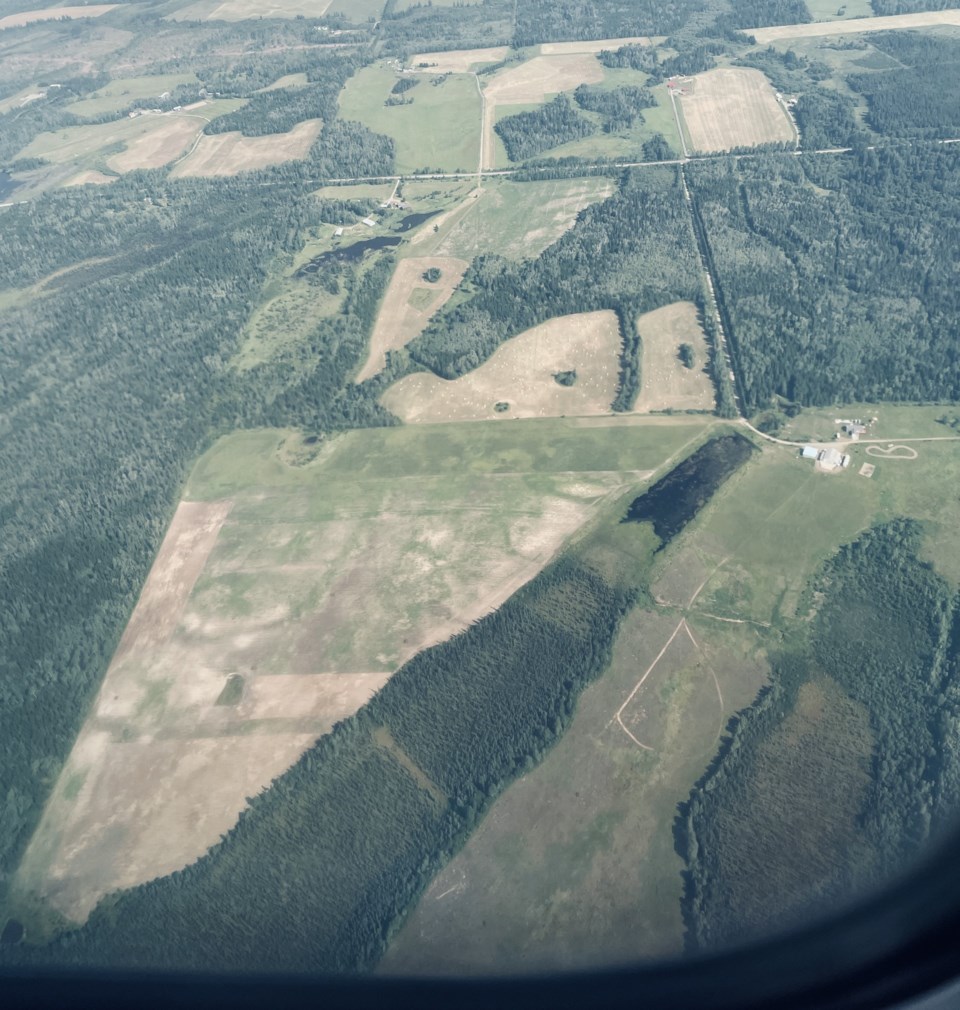There are no restrictions on foreign ownership of farmland in British Columbia and it’s about time that ended.
But with the exception of the BC Greens back in 2017, I don’t hear any of our politicians talking about it other than to sing its praises.
In 2013 when Tophay, now called Exceed Agro Inc., established a hay compression plant in Vanderhoof to ship local hay to Asia, the now-BC Conservative leader John Rustad was there to support it. It’s “an enormous opportunity to create a brand new export market for hay,” he stated in a CKPG story from June 3, 2013.
Ten years later, with a persistent drought lingering across Western Canada and local ranchers struggling to feed their own herds, never mind China’s, I wonder if that “enormous opportunity” has suddenly turned around to bite us.
We’d be wise to ensure more of our farmland stays in the hands of British Columbians, and there’s an award winning 2022 film that tells us why. It’s called “The Grab” and it documents the global takeover of agricultural land as part of a geopolitical strategy in the exercise of national power.
It documents how in 2014, around the same time a global multinational started to buy up Vanderhoof farmland, the WH Group, a Chinese-based food empire, bought Smithfield Foods, the largest US pork producer at the time. A Chinese company suddenly controlled one quarter of the American pig herd and a lot of the farmland necessary to sustain them. Just like the Vanderhoof hay, the new acquisition would focus on supplying China, not the local market. There are now concerns American consumers might run short on hams.
By bringing agricultural land under the control of state-affiliated or controlled corporations, foreign nations see this as a way to secure food supplies, and, indirectly, water for their own populations. It’s understandable in the face of an uncertain future for agriculture and water supplies. The Grab documents how Saudi Arabia, the Gulf States, and murky global multinationals with ties to privatized mercenary armies are also in on the game.
But with crop failures and droughts rearing their heads the world over, including right here at home, we need to worry about our own population and food supply as well.
There are other questionable objectives of foreign farmland ownership - the purchasing of farmland for carbon credits, or for investment or simply recreation.
One of the most ridiculous things I’ve seen is global multinationals buying farmland and planting them with sickly looking spruce and pine trees for carbon credit schemes while carbon-rich primary forests are bulldozed for new farmland nearby to make up for the shortage. What’s the point of that?
The end result is farmland prices spike. That’s great if you own land, not so great if you are a young farmer or rancher looking to buy.
Farmland isn’t just another multinational corporate product that runs on biotechnology, chemical sprays, and migrant labour.
It is part of a lifestyle that invests in regional food sovereignty and sustains communities and rural livelihoods.
If we let the foreign owners and multinationals take it over, we lose a lot more than just the supply of food.
This fall, make sure you vote for the party that will bring in restrictions on foreign farmland ownership. If there aren’t any, demand they do. In Alberta, foreign citizens and foreign-owned corporations can own no more than 20 acres of land.
Similar restrictions are in place in Saskatchewan and Manitoba. How effective these rules are is up for debate, but BC’s unrestricted free for all when it comes to foreign owned corporations or individuals buying up our farmland needs to end.
James Steidle is a Prince George writer.



